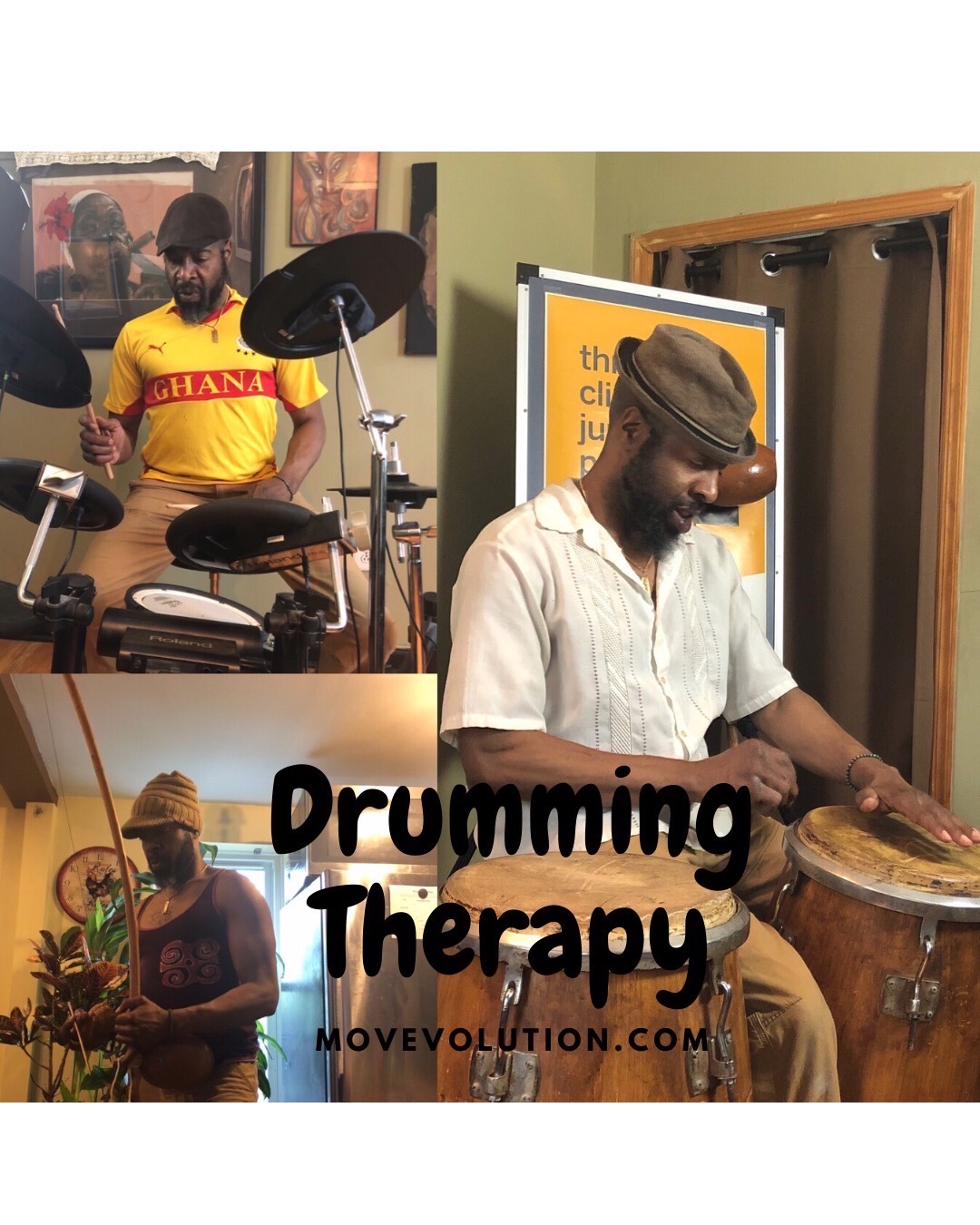Treating folks, like you, who move for a living and love to move

Blogs

Author: Richard Symister
Breath Work & Drumming Part 2: What Kind of Breather Are You?MovEvolution Drumming Therapy
Breath Work & Drumming: Maintaining Your Tempo & Improving Control
Part 2: What Kind of Breather Are You?
We started off our Tempo Breathing section talking about the benefits of proper breathing while drumming. But what is improper or dysfunctional breathing and what kind of breather are you?
I have been a physical therapist for over 23 years and when treating percussionists, I see 2 types of dysfunctional breathing:
- Upper Chest/Shallow Breathers
- Paradoxical or Reverse Breathers
Upper Chest/Shallow Breathers
Shallow or chest breathing is the drawing of minimal breath into the lungs, usually by drawing air into the chest area using the intercostal muscles rather than throughout the lungs via the diaphragm. Most drummers I treat who breathe shallowly do it throughout the day and are almost always unaware of the condition. This is often accompanied by slumped or hunching shoulders. I see this condition a lot in drummers under a lot of stress (lack of rehearsal time, life event, upcoming gig, injury), novices or during complicated intense sections of a song. This is also the familiar drumming posture for those who have other desk jockey jobs.
Paradoxical or Reverse Breathers
This is similar to upper chest/thoracic breathing, with a much more dramatic switch in abdominal vs chest activity. With “reverse” breathing, the belly gets flat during inhalation (as the chest rises) and bigger with exhalation (as the chest flattens). I find this condition harder to treat because this habit has usually been ingrained in the drummer for years.
Both dysfunctional breathing conditions can make your primary breathing apparatus, your diaphragm, less likely to assist in oxygen transport. We know, from our previous talks that this can mess with a drummer’s:
- Focus and Concentration
- Strength, Power and Endurance
- Pain
- Core Stability
So how do you know what type of breather you are? Take the test!
- Does the stomach rise with inhalation and fall with exhalation?
- Is there limited chest activity, especially with inhalation?
- Are you comfortable with a 4 second in, 4 second out breathing tempo?
- Are you inhaling through your nose?
- Can you hold your breath for at least 25 seconds?
If you answered “no” to any of these questions, you may be dysfunctional breathing and significantly affecting your drum performance.
Let’s drum on and learn how to strengthen your breath work chops.
Hey, your body can’t make up beats if your body is all beat up! Contact Us to play without pain HERE!

